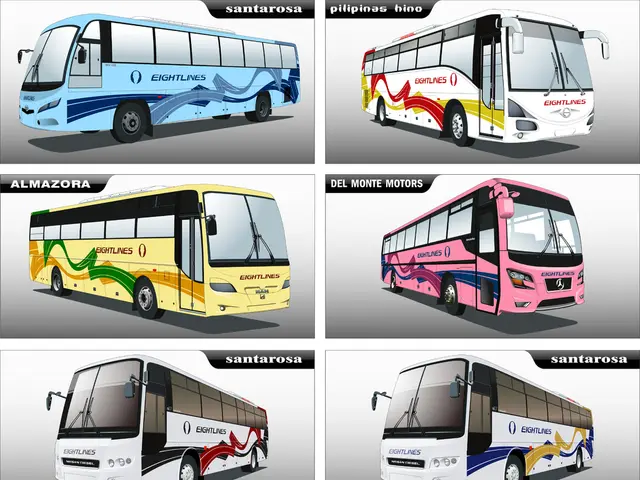Hitting Hard Times: Rhineland-Palatinate's Struggling Job Market
Joblessness in Rhineland-Palatinate has been on a steady ascend since the past three months. Confirming this daunting fact, August rolled in with an alarming 5.5% unemployment rate—a marked jump from July's 5.4%, and a sizeable leap from August of the previous year's 5.1%. Following a report from the local office of the Federal Employment Agency in Saarbrücken, a staggering 125,800 individuals found themselves unemployed in August, reflecting a worrying increase of 3,400 people from July's stats.
As per Heidrun Schulz, head of the Rhineland-Palatinate-Saarland regional office, job listings have taken a massive hit, dwindling by approximately 12% over the past month compared to July, with the decrease even reaching a troubling 26.4% compared to the same period last year.
Despite a decrease in the number of those re-entering the workforce, around 9,000 individuals registered as unemployed in August. However, the total number of job openings took a tumble, with 36,500 positions available—a decrease of 400 from the previous month and over 12% less than the same period last year.
The apprenticeship market, too, hasn't been immune to this hardship, with 4,000 young individuals actively searching for placements, while 7,400 open positions remain. This points to a concerning situation, with 54 young individuals competing for every 100 unfilled apprentice positions. Despite this gloomy situation, Schulz from the regional office remains optimistic, encouraging young individuals not to lose hope with a reassuring, "There are still plenty of opportunities for young individuals on the apprenticeship market. Don't delay your pursuit!"
Turbulent Economic Waters Across Germany
Numbers suggest that unemployment rates in Germany as a whole hovers around 6.4% as of February 2025, with considerable variations between federal states. Places like Bremen and NRW have experienced higher unemployment rates compared to Bavaria, which boasts a relatively lower unemployment rate.
Regional economic troubles can be observed in areas like NRW, grappling with high levels of unemployment and poverty partly due to the anti-refugee policies of political parties like the Greens, which have led to increased deportations and stringent migration policies.
Locally, the economic situation causes concern among voters, with 70% of people worried about the outcome of the federal elections. Economy remains the most pressing issue for respondents, followed closely by immigration and social injustice.
Assessing Rhineland-Palatinate's Economic Landscape
An in-depth analysis of Rhineland-Palatinate's job market requires data specific to the region. However, the broader economic trends and regional challenges in Germany hint that Rhineland-Palatinate may be facing similar hurdles, especially considering its proximity to the struggling Ruhr region.
During the fourth quarter of 2024, Germany's overall economy experienced a decline in real GDP by 0.2%. This was mainly due to weaker industrial output, particularly in the automotive and energy-intensive sectors. Meanwhile, the export industry is struggling, with the Bundesbank forecasting just a small amount of growth in 2025 due to the extended period of weakness in industry. Moreover, inflation rates have dropped significantly, from 6.0% in 2023 to 2.5% in 2024, although core inflation (excluding energy and food) has risen to 3.2%.
Comparatively, Rhineland-Palatinate's traditional industries, such as coal mining and manufacturing, are vulnerable to environmental changes and global market shifts. The region is also dealing with infrastructure at risk from extreme weather events and concerns about water supply and groundwater levels. Still, the region's focus on energy management and sustainability offers potential for job opportunities in renewable energy and green technologies, which are growing sectors in Germany.
Like other regions in Germany, Rhineland-Palatinate faces a worker shortage across various industries, including construction, teaching, and healthcare. This deficit is intensified by the retiring baby boomer generation and the need for migrant workers to fill skill gaps. Given the complex mix of economic trends and regional dynamics, it becomes clear that Rhineland-Palatinate needs to adapt to emerging sectors and address broader economic and demographic challenges to overcome its current predicament.








